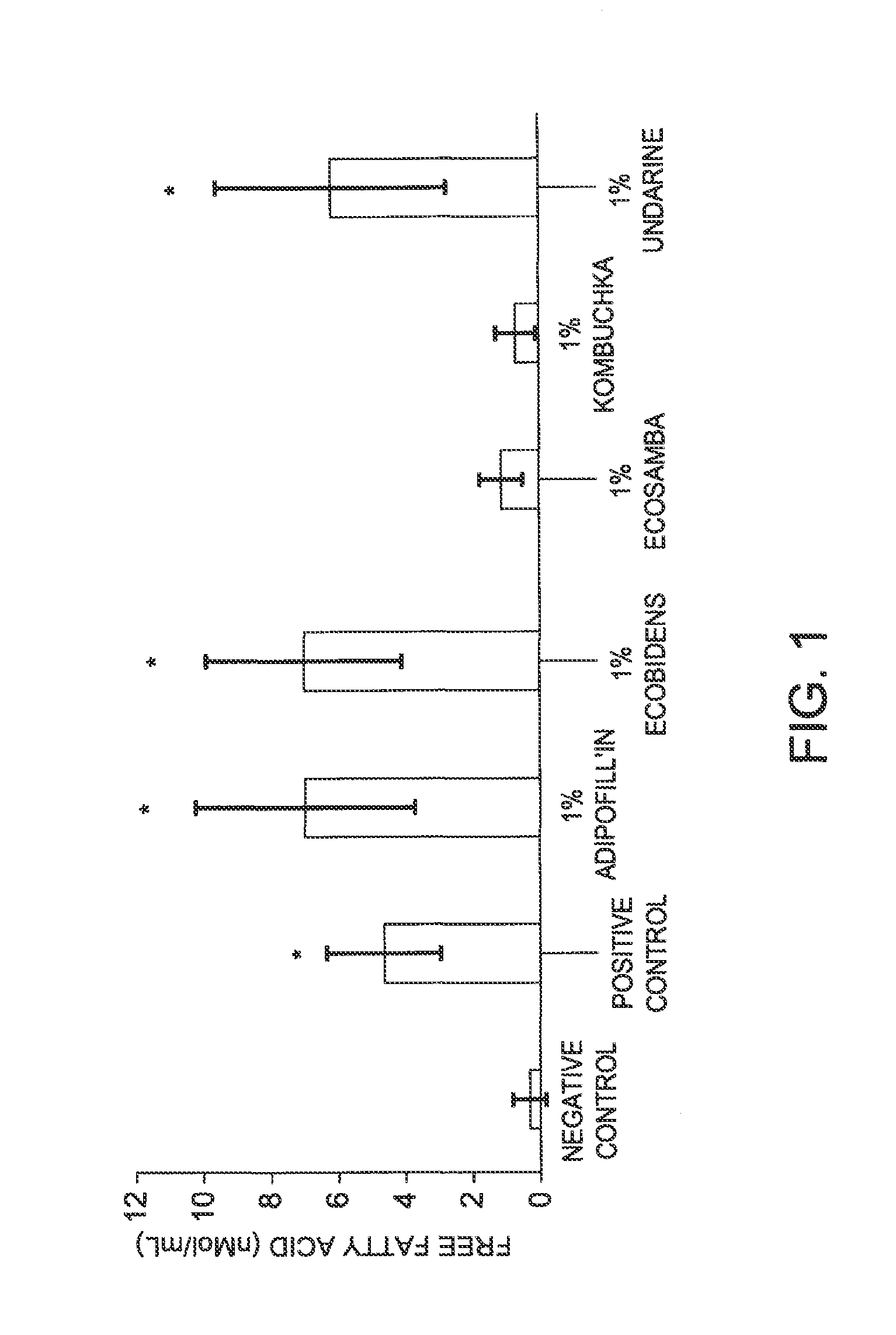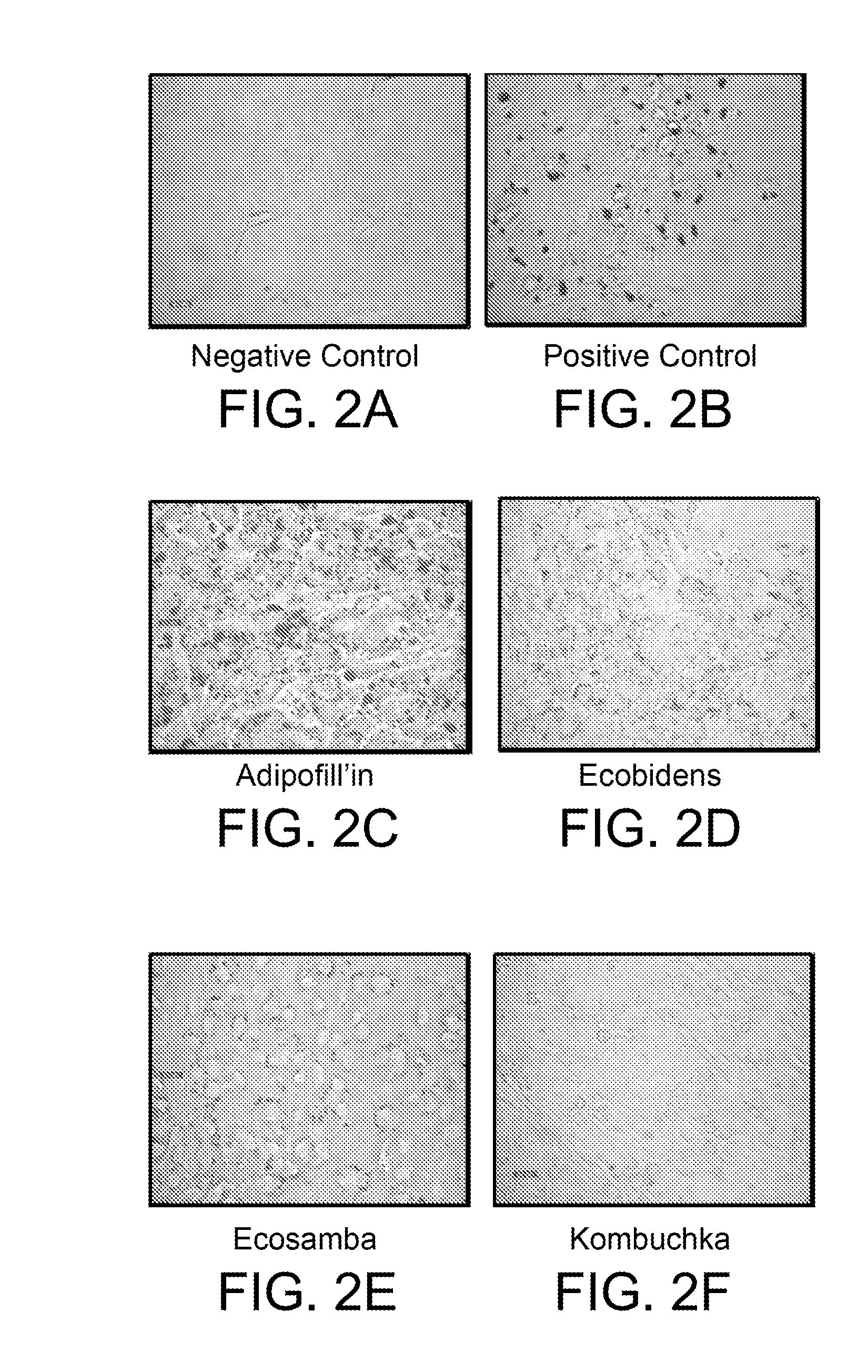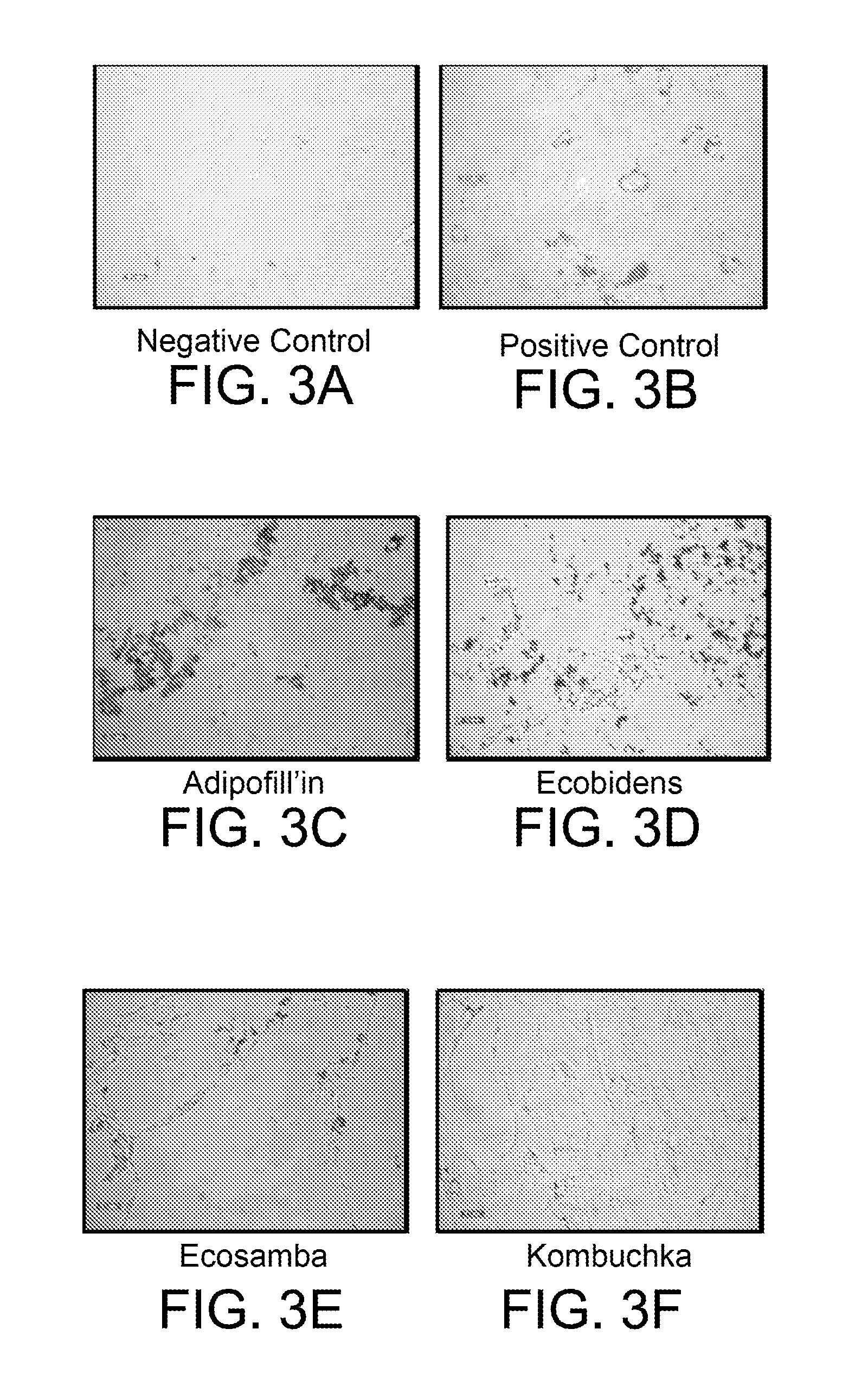Use of undaria extract to reduce signs of skin aging
a technology of undaria and extract, which is applied in the field of compositions and methods can solve the problems of not being shown to be effective, the skin of the face and neck area is particularly prone to the signs of aging, and the toll of aging on the appearance of the outer genital area, etc., to reduce the signs of skin aging, and increase the adipogenesis of the face and body
- Summary
- Abstract
- Description
- Claims
- Application Information
AI Technical Summary
Benefits of technology
Problems solved by technology
Method used
Image
Examples
example 1
Free Fatty Acid Quantification
[0118]In this Example, free fatty acid production in cells treated with various active ingredients was quantified by measuring free fatty acids in cultured media (MesenPro RS™ medium with 200 mM of L-glutamine and 10 mg / ml of gentamycin) following cell lysis.
[0119]Human adipocyte-derived stem cells (ADSC) were treated with 1% (v / v) active ingredients for 24 hours, followed by a 2-week growth period. Following ADSC lysis and prior to gene expression analysis (described below), free fatty acids were measured fluorometrically using a free fatty acid quantification kit according to the manufacturer's instructions (Abcam; Cambridge, Mass.). Positive control cells were differentiated with STEMPRO® Adipogenesis Differentiation Kit (Invitrogen, Carlsbad, Calif.).
[0120]As shown in FIG. 1, 1% ADIPOFILL'IN™ (including propanediol, ornithine, phospholipids and glycolipids, commercially available from Lucas Meyer Cosmetics (Quebec, Canada)), 1% ECOBIDENS™, and 1% II...
example 2
Adipogenesis and Lipid / Free Fatty Acid Accumulation
[0121]In this Example, cells were exposed to active ingredients to study differentiation along the adipocyte lineage as evidenced by the lipid / free fatty acid accumulation in cells as detected by Oil Red-O staining.
[0122]Specifically, mouse 3T3-L1 and human adipose-derived stem cells (ADSC) were exposed to 1% (v / v) active ingredients for 48 hours. Following 48 hours of exposure, standard growth media (MesenPro RS™ medium with 200 mm of L-glutamine and 10 mg / ml of gentamycin) was added and re-fed every 2-3 days to allow for differentiation along the adipose lineage for 2 weeks using the respective manufacturers' guidelines. For mouse 3T3-L1 cells, a positive control (FIG. 2B) was stimulated with DMEM (Dulbecco's Modified Eagle Medium) with 10% fetal bovine serum (FBS) and 5% penicillin / streptomycin and further supplemented with 1 μM dexamethasone, 0.5 mM IBMX and 10 μg / mL insulin. ADSC cells were differentiated with STEMPRO® Adipogen...
example 3
Genetic Marker Analysis
[0125]In this Example, qRT-PCR was used to measure expression of genes involved in adipogenesis.
[0126]PPAR-gamma is involved in adipogenesis signaling cascades as a known adipogenesis promoter. To investigate the expression of PPAR-gamma in adipogenesis stimulation via the active ingredients, RNA was isolated from treated ADSCs for qRT-PCR analysis. Relative expression of PPAR-gamma was compared to β-Actin (a housekeeping gene) and all samples were normalized to a negative control (untreated cells). Positive control cells were differentiated with STEMPRO® Adipogenesis Differentiation Kit (Invitrogen, Carlsbad, Calif.).
[0127]RNA was isolated from differentiated cells according to the manufacturer's instructions (QIAGEN RNeasy kit). cDNA was generated using QIAGEN First Strand Reverse Transcriptase kit according to the manufacturer's directions. TaqMan 2× Universal Master Mix with TaqMan GAPDH (VIC), β-Actin (VIC), and PPAR-gamma (FAM) validated probes were used...
PUM
 Login to View More
Login to View More Abstract
Description
Claims
Application Information
 Login to View More
Login to View More - R&D
- Intellectual Property
- Life Sciences
- Materials
- Tech Scout
- Unparalleled Data Quality
- Higher Quality Content
- 60% Fewer Hallucinations
Browse by: Latest US Patents, China's latest patents, Technical Efficacy Thesaurus, Application Domain, Technology Topic, Popular Technical Reports.
© 2025 PatSnap. All rights reserved.Legal|Privacy policy|Modern Slavery Act Transparency Statement|Sitemap|About US| Contact US: help@patsnap.com



